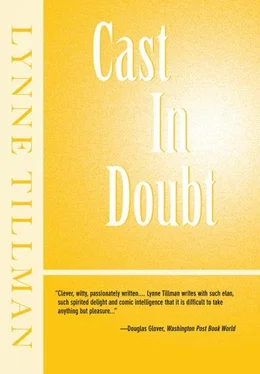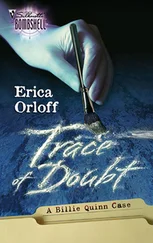Stan Green is not a bigot but works with cops who are. These are the people he enjoys hitting, as I would, were I not so morbidly afraid of violence and blood. When I was a small child, I accompanied my mother on her visit to the doctor. The doctor allowed me in the room with her when he took her blood. I fainted dead away. I was never interested in experimenting with any drugs that required needles, and this was another reason the poets around the Beat Hotel in Paris disdained me. I first met Wallace there but I’m not sure he remembers. I hope not.
A letter from an old school chum, who, years ago, started to write me for reasons I cannot assay, lies nearby. He, like Gwen, wishes to keep me abreast, though, in his case, I am not sure why. He has enclosed some clippings, but without their dates. President Ford fell down on his arrival at Salzburg, where he had traveled to see Bruno Kreisky and to hold talks with Anwar Sadat. I’ve never been to Salzburg and have no desire to go. In fact I have almost no desire to travel anywhere. My friend has also sent me a picture of Nelson Rockefeller in a Mickey Mouse cap, with a caption noting that Rockefeller’s bogus commission has cleared the CIA of domestic civilian surveillance. “There was no widespread pattern of illegality.” Does anyone believe this?
What was it I meant to do? Have Stan Green investigate the murder at the scene of the crime. He must enter the town of Bedlam, where he will view the corpses, study the autopsy report, and, upon arriving at the home of the young alleged murderer, describe in detail the cruel and sadistic manner in which the young murderer stabbed to death his mother and father, after which he dragged their bodies, wrapped in blankets, to the backyard. There the son buried their mutilated corpses — near the grave of the family poodle, Fifi. Unfortunately I can’t make reference to Edith Wharton who, at her summer home, The Mount, had a cemetery for her dogs. Stan Green wouldn’t read Edith Wharton. Perhaps the murderer’s mother would have. Still, it’s improbable that the family buried their dog, complete with a tombstone, in imitation of Edith Wharton. In any case I can’t for the life of me figure a way to work that into the plot.
From the records of that time, weather reports, and so on — the murder occurred on January 14, 1943—I have learned that it was a stormy night with no moonlight. This permits, indeed encourages, suspense and dread, as I can weave an alarming fabric of stealthy and dark elements against which to dramatize the evening’s sinister activity. I must show Green as he follows the bloodstained carpet and the path the boy took as he walked down the attic stairs to his mother’s bedroom. She may have turned slightly at the sound of him and probably was startled to see her son at home. Before she speaks even one word, a what-are-you-doing-home, son? he brandishes his knife and thrusts it into her back. A pathetic scream here. Then he slits her throat. He stabs her twenty-two times, plunging the knife in her again and again, until she emits no sounds at all. The son may have heard his father’s footsteps. The boy drops to the floor, behind his mother’s reading chair, a rocking chair — with pillows, a good effect always. There is blood on his hands and blood smears on the floral-patterned fabric. The father sees the slumped and bloodied body of his wife. In fear for his life, he runs downstairs to his rolltop desk where the telephone is. The son follows him and in a similar manner, with his father’s back to him, he plunges the knife in, although he does not slit his father’s throat. So much for the outline of this scene.
I type: Stan Green had a hunch. It was the father the crazy kid was after. Green thought he’d seen it all, but in the morgue, back then, looking at the father’s corpse, he got sick to his stomach. He nearly lost his cookies. But Stan Green didn’t want to think about that now. Green had a job to do.
I may include an act of sexual mutilation. It might add just the right touch and may be appropriate, although it was not part of the original newspaper report. But they wouldn’t have included that anyway, at that time. We are much more open these days about such horror. As a knowledgeable detective, Green would surely be able to use his psychological acumen to provoke a response from a neurotic young man with a father fixation. Green could invoke through his own person the figure of the despised father. Green is sharp; he has a nose for crime and criminals. I’ve already established his nose as big and bulbous, something like a bloodhound’s. Using cheap psychology, Green could slyly pry a confession loose; it would be easy as pie for Stan Green. But how to do that? Why do I make matters so complicated for myself? Simplify, Horace, simplify!
My fingers have gone numb. I shake them and hot points of pain pass through each digit as if my hands were an electrical circuit. I take another stab at it. But I’m not in a Stan Green mood at all. That passage, that chapter, will need a great deal of work and fleshing out, I think, to draw the reader’s blood. I feel contemplative, not like a sleuthing man of action. Of course Green is, as I am, given to depression, which my publisher attempts to edit out as unmanly or undetective-like. We fight about this each time, then compromise. That is, I compromise. No doubt, out will go “big, bulbous nose,” because it’s humorous.
I ought really to work on Household Gods. Great-Aunt Martha argued incessantly, just like Gwen. But unlike me or Gwen, she led crusades and carried banners and was in fact one of the representatives at that first women’s-rights convention in Seneca Falls. She was a temperance feminist; her husband was an alcoholic. I can’t prove this but it seems to me that either her father drank or her husband did. The fury with which she engaged the battle against drink must have had some personal meaning to her, must not solely have been an abstraction. In some of her letters I can detect such discontent; that is, it seems to me, she is not just fighting the good fight.
She is a good woman, a very good woman, her goodness is her goodness alone. She lords her goodness over the brood. It is like a flower is her goodness, it buds and blooms, and it is her armor against him and all that is tainted by the material world.
I have given her a transcendental slant.
My fight is a different fight, if it is even a fight. I am not intemperate, but certainly not temperate, in Martha’s sense of the word. My fight may not even be a skirmish. Is each life a struggle? Or does one have to be aware of struggle? I struggle with myself, my sense of futility, my desire to do good and to be original in my thinking, my need to find what is new and to hold on to what is good that is old. I’m actually somewhat less in thrall to and interested in my feminist forebears than in the abolitionist side of the family and the slavers.
I once was witness to a chain gang. A young child, I was traveling in the South with my parents. I couldn’t have been more than twelve. I remember the trip as both astonishing and dreadful, the winding roads frightening for what one couldn’t see behind the next bend. Gothic, truly. We came upon a chain gang, and I saw a man, a black man, a Negro. Actually he saw me. His eyes caught mine; the look was naked. His legs and hands were shackled. I was never more horrified. After that I began to imagine in the vivid way a child can the tortured life of a slave, the criminality of the white planters and their wives in regard to the treatment of these human beings. Since then, since that time, I have felt deeply that it was slavery that made my country the study in hypocrisy that it is. Reconstruction—! And what did Jefferson say to himself in the early enlightened days?
I’ve just learned — and how did I not know this? — that Liberia was settled in 1822 by freed slaves. Roger, a Southerner of all things, told me this recently, and I must admit, scoundrel that I am, that I pretended already to know it. But in fact I was stunned at my ignorance and thought immediately to research it further, perhaps to base a novel on the fearless black men. But I don’t want to leave this island, and the truth is that some work I ought to be doing requires me to leave it, this glorious place. I cannot.
Читать дальше












